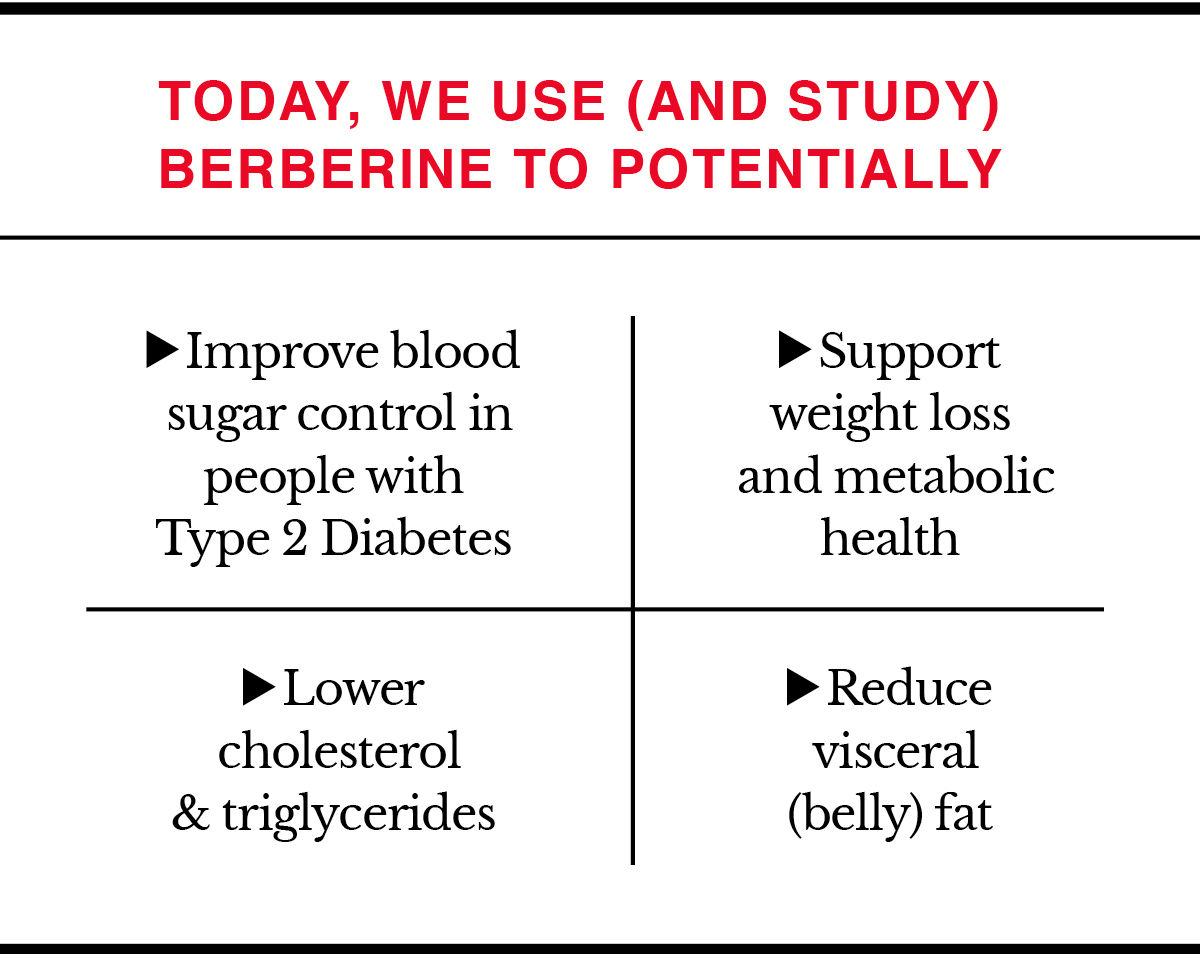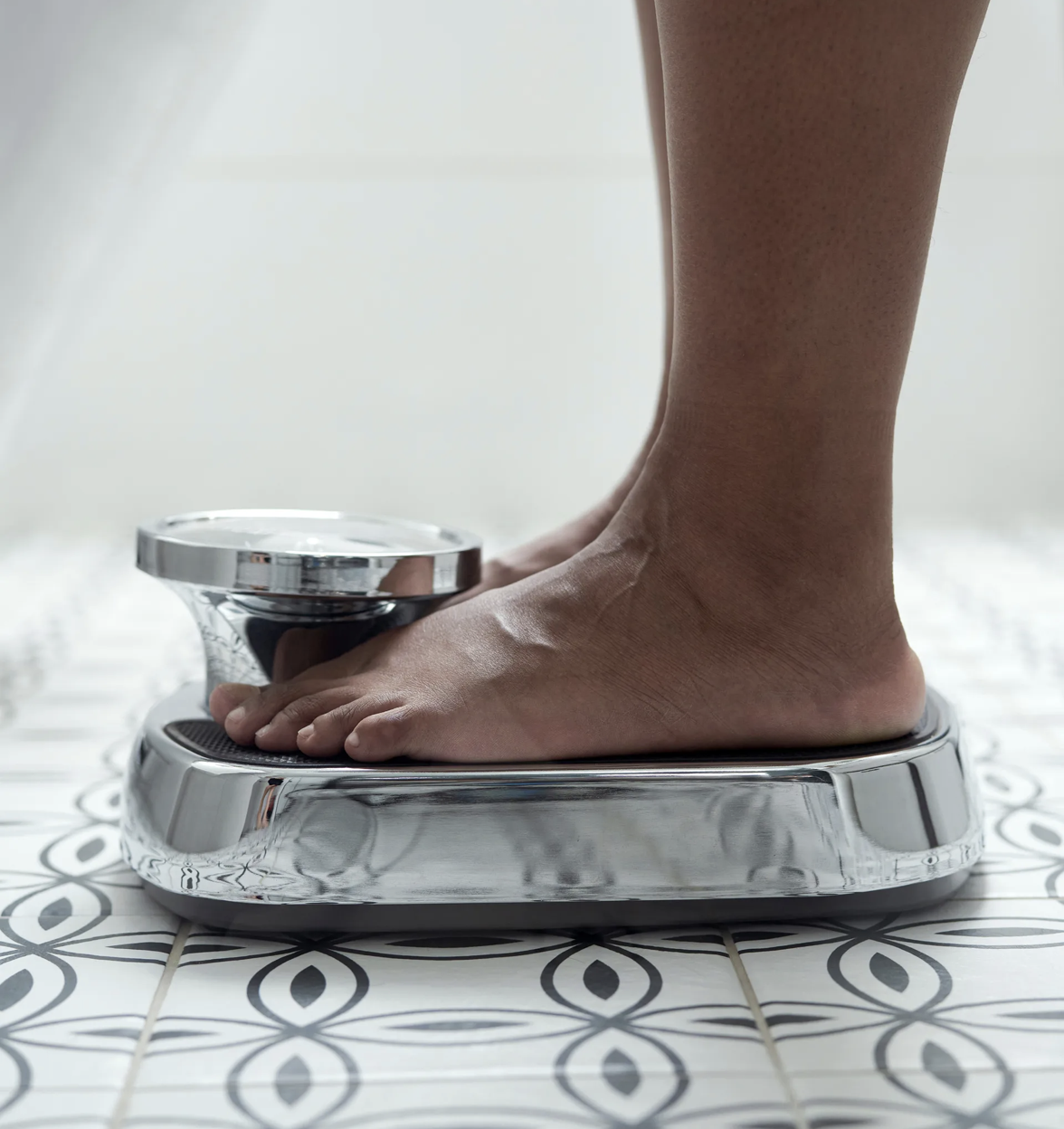"Will Berberine Help with Visceral Fat Loss?"
Dubbed “Nature’s Ozempic,” berberine is making waves online—but does this ancient compound actually live up to the metabolic hype?

It’s being hailed on social media as “Nature’s Ozempic.” But is it really worth the hype?
Meet berberine. This yellow, bitter natural compound is extracted from several plants, including the Berberis species like barberry, goldenseal, and Oregon grape.
While it’s been a staple in Chinese and Ayurvedic medicine for thousands of years, treating everything from infections to digestive issues to inflammatory conditions, today it’s famous for its (supposed) weight loss side effects.
But can berberine actually help with weight management, particularly with visceral fat (the fat stored deep within the abdominal cavity)? Here’s some mini-med school on berberine.
What is Berberine, Exactly?
Berberine is an alkaloid, which is a naturally occurring compound with potent biological effects. But what makes berberine particularly interesting is that it acts at a cellular level.
Berberine activates an enzyme in our body called the AMP-Activated Protein Kinase (AMPK). Think of AMPK as your body’s “Metabolic Master Switch.” When berberine flips this switch on, it can help regulate how your body uses energy.

What Does The Science Say?
Lab studies show that berberine works in two ways with our fat cells:
- It prevents existing fat cells from getting bigger.
- It encourages the body to create smaller fat cells (adipocytes) that respond better to insulin.
Why does this matter? These smaller, more responsive fat cells may improve how your body processes sugar and reduce inflammation in visceral fat tissue. This could explain why berberine supplements have been linked to modest reductions in body mass index (BMI) and waist size in some clinical trials (Xiong et al., 2020).
But here’s where things get interesting:
Berberine doesn’t just impact regular fat—it activates brown adipose tissue (BAT), a special type of fat that burns calories to generate heat.
By ramping up this internal furnace, berberine appears to accelerate metabolism, which explains why a study found that just one month of berberine treatment led to reductions in body weight and improvements in insulin sensitivity in people with fatty liver disease (Wu et al., 2019).
The Cons of Berberine
These findings are promising—but let’s not get ahead of ourselves! Berberine isn’t exactly the metabolic miracle some TikTok influencers might have you believe:
- Berberine’s effects are modest compared to other FDA-approved weight loss medications (such as Ozempic or Wegovy).
- Berberine may not interact well with certain medications.
- Pregnant or breastfeeding? This supplement isn’t for you as there is a concern that it passes into the placenta and breastmilk.
- Potential side effects include cramping, diarrhea, and gastrointestinal discomfort.
- Berberine’s bioavailability (how much your body absorbs) is relatively low unless formulated carefully.
Bottom line? Berberine has the potential to reduce belly fat and improve your metabolic health (especially if you pair it with diet and exercise). But before you jump on the berberine bandwagon, consult with your healthcare provider to see if this supplement deserves a spot in your medicine cabinet.


